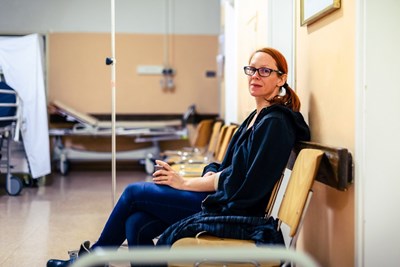WASHINGTON, DC—A new poll from the American College of Emergency Physicians (ACEP) and Morning Consult shows that almost half of adults (43%) would delay or avoid going to the emergency department if they knew that they, or a loved one with a severe illness or injury, could face extreme delays associated with “boarding,” a dangerous hospital system overload that leaves patients in the emergency department waiting to move to an inpatient bed or transfer to another facility after initially being cared for, not just for hours but sometimes days, weeks, or longer.
“Boarding in the emergency department is a national public health crisis,” said Aisha Terry, MD, MPH, FACEP, president-elect of ACEP. “There’s no question these excessive delays are harmful to patients waiting to be transferred and those waiting to be seen. It should alarm regulators, policymakers, and health system leaders that people would delay or avoid emergency care and risk their health because of these systemic hospital bottlenecks.”
Nearly half (44%) of U.S. adults indicate that they, or a loved one, have experienced prolonged waits after being seen in the emergency department before being admitted or transferred. Of those, 16% said the wait was 13 hours or more, according to the ACEP/Morning Consult poll.
According to ACEP, boarding is a systemic problem that hinders patients access to care. While boarding, admitted patients languish in the emergency department rather than being transferred to their inpatient room, where optimal care would be received.
"The public is telling us they are willing to put themselves or family members at risk simply to avoid lengthy delays facing them as they await medical services beyond the emergency department. This risk is unacceptable to us,” said Dr. Terry.
ACEP outlined the dangers of boarding in a November 2022 letter to the White House, gathered more than 140 troubling stories directly from emergency physicians on the frontlines, and continues to support legislation and policy solutions to address the root causes of the crisis.
Among potential solutions, poll respondents strongly endorse supplemental funding for emergency care. Nearly all adults (93%) agree that emergency medical services are essential and 89% favor making additional government funding a priority to support emergency departments, paramedics, and emergency medical services.
“These delays strain our health care safety net, exacerbate emergency physician and staff burnout, and increase the chances for poor health outcomes, medical errors, or worse,” said Dr. Terry. “Emergency physicians and care teams are doing their best under extraordinary circumstances, but they cannot solve these problems alone.”
In September, ACEP convened a national summit of stakeholders across health care including representatives from hospitals, nursing homes, EMS, federal and state policymakers, patient groups, and mental health clinicians to address the dangers of boarding and identify collaborative opportunities for immediate and longer-term solutions.
“Institutional challenges require systemwide solutions,” said Dr. Terry. “Now is the time for health care decisionmakers to come together and make real progress to protect patients and address the causes and consequences of patients boarding in the emergency department.”
 American College of Emergency Physicians
American College of Emergency Physicians







